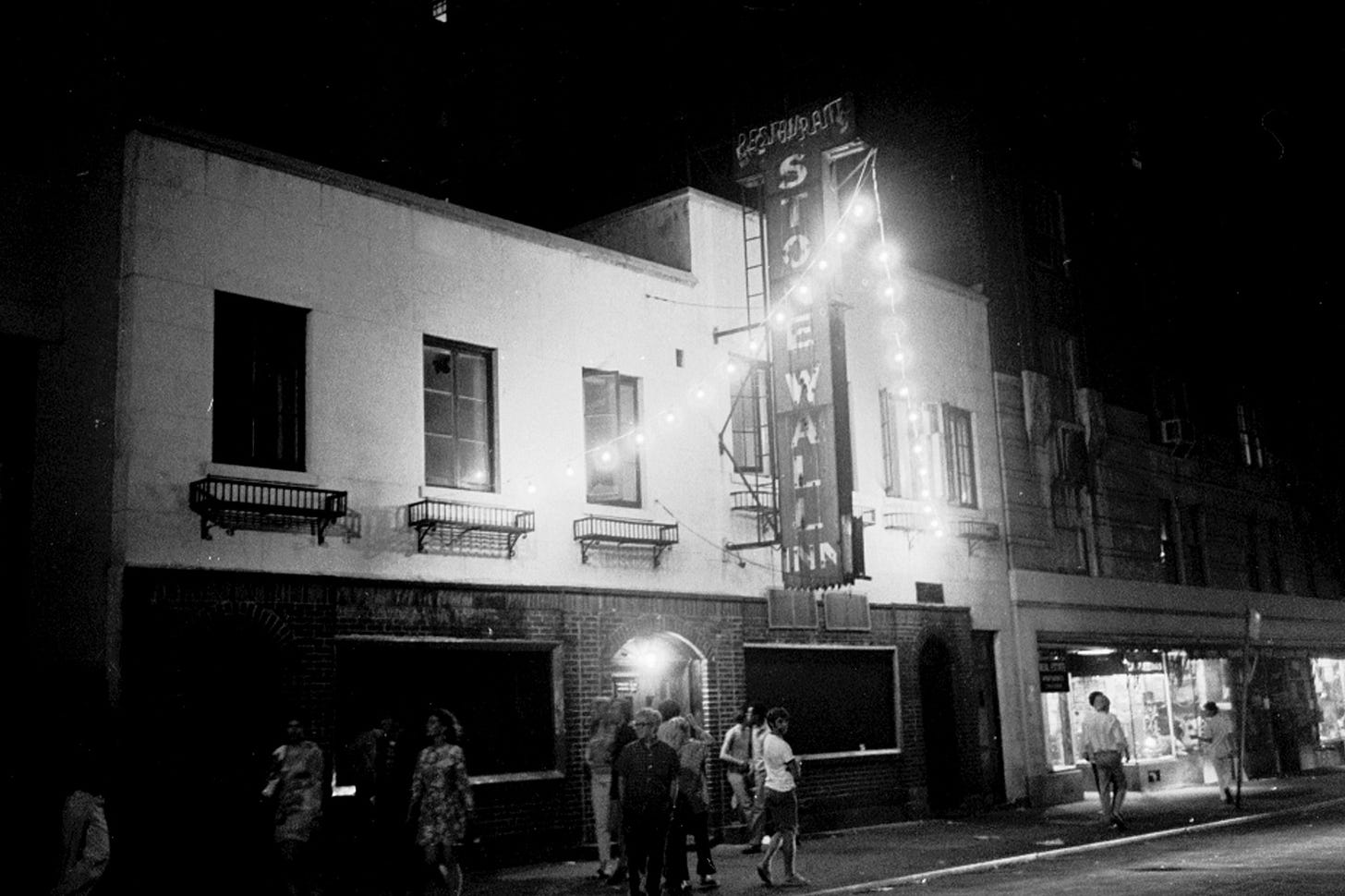Cops at Pride & The Dangerous Whitewashing of Queer History.
The police oppressed the LGBTQ+ community. Now they want to celebrated as allies.
This is a free JoeWrote article, one of many explaining and exploring the history and policies we need to build a more humane, equitable world. If you’d like to ensure I’m able to continue producing content like this, please consider a paid subscription. Along with getting access to exclusive bonus content, paying subscribers ensure I can continue producing articles like these.
Thank you for your support, and enjoy! - Joe
June is Pride Month, the annual celebration of queer liberation and the brands that seek to profit from it.
The springtime cascade of rainbow marketing campaigns is well-known and rightfully mocked as having gone beyond parody. I recently wrote about these hollow advertising attempts and “Woke Capitalism, which you can find below.
But along with this yearly corporate branding opportunity, Pride Month brings another seasonal tradition: the ongoing debate of, “Should the police be invited to Pride celebrations?”

On one hand, some argue that excluding police from Pride events diminishes queer police officers, downplaying the persecution they’ve endured because of their sexual or gender identity. After all, who is an event organizer to tell someone else that they’re not “queer enough” to be worthy of celebration?
This argument is convincing, but only if we ignore the historic role American police have played in the oppression of the LGBTQ+ community. From the very beginning, Pride has been about fighting back against a society that seeks to silence queer existence. And as the origin of Pride shows, the police have long been the mechanism used to push queer life back into the shadows.
Stonewall & The Origin of Pride
The modern movement for LGBTQ+ rights started in the summer of 1969, in New York City. In the early hours of June 28th, the police raided the Stonewall Inn, an underground, mob-owned gay bar. Raids were common at the time, as the cops saw the queer community as easy prey to make a quick buck. During a raid, cops would shake partygoers down for bribes. Anyone who didn’t pay was arrested (same-sex relationships were illegal at the time), effectively outing them as being gay.
But on June 28th, 1969, things went differently. Fed up with the harassment, the Stonewall patrons fought back. The brawl poured into the streets, where other members of the Greenwich Village joined in, turning the riot into a week-long uprising. In one of the most effective organizing programs in social justice history, the momentum of the uprising was channeled, becoming the queer-rights movement that we recognize today. Just a year later, Pride swept the country. On June 28th, 1970, the first gay pride parades marched through the streets of Chicago, New York, and L.A., cementing June as Pride Month.
Just like the role of Black activists, labor organizers, and radical feminists is severely downplayed by an establishment that now celebrates Black Lives Matter, weekends, and women’s rights, the role of militant queer folks in birthing the Pride movement is ignored by those who wish to co-opt June to sell products or whitewash their role in historic oppression.
Not only is whitewashing offensive; it is dangerous, as it gives modern audiences a distorted understanding of the mechanisms of change. Today, America is rife with anti-LGBTQ+ hate, particularly against trans folks. If we ignore the role the Stonewall riot played in winning dignity for the queer community, then we risk falling into the trap of believing we can protect trans kids by simply retweeting whatever rainbow graphic Walmart posts on Twitter. If we want to enshrine the gains the LGBTQ+ community has made, as well as combat the threats they face today, we must understand how change was brought.
The right to be openly queer wasn’t earned through buying t-shirts from the company with the best Instagram post. It was earned through direct conflict against the police, who sought to exclude the queer community from polite society.
To invite NYPD, or any other police department, to a Pride event, is to lie about the history of queer liberation. At a time when the safety and personhood of transgender and queer folks are under attack, remembering the true story of Pride is more important than ever.
If you appreciated what you just read, please like, share, subscribe, and send this article to a friend.




I'd love to hear thoughts from someone who identifies as a member of the queer community. What do you think about the controversy surrounding police at Pride events?
It is important to honor history, but it’s equally important to encourage and recognize when institutions move closer to Justice. Policing in America has a very long way to go. We should celebrate small wins while always being mindful of the long past.